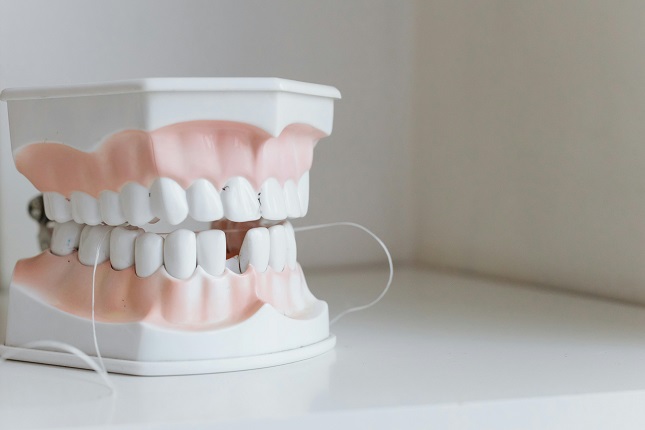If you’re considering All-On-4 dental implants, you’re likely looking for a permanent solution to uncomfortable dentures or missing teeth. This innovative treatment can boost your confidence to smile, speak, eat, and laugh without worry. However, the process can feel overwhelming if you don’t know what to expect. This guide will walk you through everything you need to know before and after your visit to an All-On-4 clinic.
What to Expect Before Treatment
Before you even step into an All-On-4 clinic, it’s important to do your research and prepare for the journey ahead. The first step is to find an All-on-4 specialist who has the expertise and experience to ensure your treatment is successful.
The specialist will thoroughly examine of your mouth, including X-rays or 3D scans. This helps them assess the jawbone’s condition and plan the precise placement of the implants. Don’t be surprised if they ask about your medical history, as certain conditions or medications may affect the treatment process.
You’ll also have the opportunity to ask questions and address any concerns. Once you’ve decided to proceed, the clinic will provide you with pre-treatment instructions. These may include avoiding food or drink for a certain period before the procedure and taking time off work to recover.
What Happens During the Procedure
On the day of your treatment, you’ll likely feel a mix of excitement and nervousness. Rest assured, the All-On-4 procedure is designed to be as comfortable and efficient as possible. Most clinics offer sedation options, such as local anesthesia or IV sedation, to ensure you’re relaxed throughout the process.
The procedure itself involves placing four dental implants in your jawbone, supporting a full arch of prosthetic teeth. The implants are strategically angled to maximize stability, even if you have some bone loss. Once the implants are in place, the specialist will attach a temporary set of teeth. It allows you to leave the clinic with a fully functional smile on the same day.
While the procedure is minimally invasive than traditional implants, it’s still a surgical process. You may feel some pressure or mild discomfort, but the sedation will keep you comfortable. The entire process typically takes a few hours, depending on your specific case.
What to Expect After Treatment
Undergoing a dental implant is a significant step toward achieving a beautiful smile and restoring your arch of teeth. Whether you’ve opted for implant-supported dentures, a full-arch restoration, or All-on-4 implants, proper aftercare is essential for long-term success. Here are some tips to ensure a smooth recovery and optimal long-term results:
1) Stick to Soft Foods
For the first few days after oral surgery, adhere to a diet of soft foods like mashed potatoes, yogurt, soups, and smoothies. These options are gentle on your healing gums and implants, reducing the risk of irritation or damage. Avoid hard and sticky foods that could disrupt the healing process or put pressure on your new artificial teeth. This temporary adjustment will help you enjoy your favorite foods again soon.
2) Avoid Smoking
If you’re a smoker, consider this an opportunity to quit or at least refrain from smoking during the healing periods. Smoking can compromise your dental implant surgery’s success and delay recovery. Your mouth restoration deserves the best chance for success, so prioritize your oral health.
3) Maintain Excellent Oral Hygiene Practices
Even though your new teeth are prosthetic, keeping your mouth clean is vital to prevent infections and ensure the longevity of your implants. Brush gently but thoroughly and use floss threaders to clean around the implants without disturbing the healing areas. Proper oral hygiene practices maintain your confidence to smile.
4) Attend All Follow-Up Appointments
Your treatment plan includes scheduled follow-up visits to monitor your progress. These appointments allow your dental clinic to address any concerns, such as the need for additional treatments like a bone graft or adjustments to temporary bridges. Consistent care ensures the best long-term results.
5) Be Patient During the Healing Process
It’s normal to experience some discomfort, changes in speech, or difficulty eating during the initial weeks. Whether you’ve undergone tooth extractions, mouth reconstruction, or implant dentistry, your mouth needs time to adjust. Follow your dental care provider’s instructions and trust the process.
6) Consider Additional Treatments if Needed
If your initial consultation revealed the need for a bone graft or other additional treatments, ensure these are completed as part of your surgical planning. These steps are crucial for the stability of your permanent teeth and overall mouth restoration.
7) Explore Your Options for Smile Makeovers
If you’re transitioning from traditional dentures or a partial denture to implant-supported dentures, you’ll notice a significant improvement in comfort and functionality. Discuss your goals with your dental office to explore options like full-arch restoration or All-on-4 Center solutions for a complete smile makeover.
8) Read Patient Reviews and Choose a Trusted Provider
Look for patient reviews and choose a dental clinic with expertise in implant dentistry and oral surgery. A skilled team will guide you from the initial consultation to surgical planning and beyond.
Bottom Line
It’s important to remember that your body needs time to adapt to the implants. Poper care, including maintaining consistent oral health routines, will help you achieve the best results. Many clinics offer low-fee loans or personal loans to make the procedure more accessible. If you’re unsure about the procedure, discuss alternative options with your specialist.









































